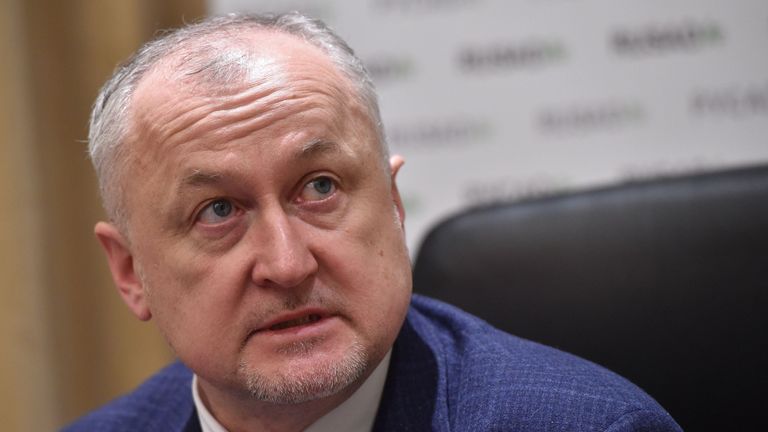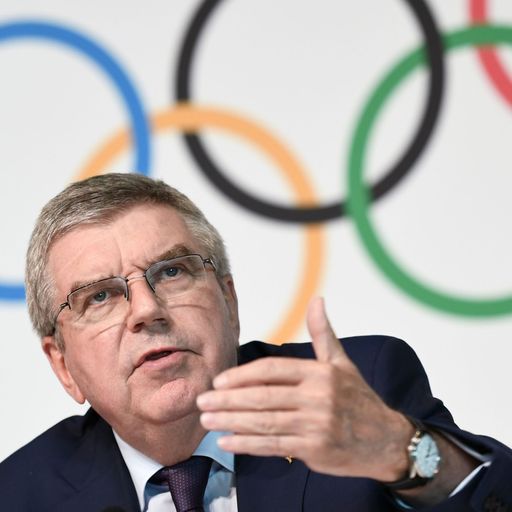Russia anti-doping chief Yuri Ganus fears 'significant restrictions' over alleged data tampering
Tuesday 8 October 2019 14:57, UK
The CEO of Russia's anti-doping agency expects "significant restrictions" on the whole of Russian sport over alleged data tampering.
Russia's Sports Ministry has until Wednesday to explain to the World Anti-Doping Agency (WADA) why data it handed over appears to have been doctored, with some key evidence selectively deleted.
If WADA rules it to be another Russian doping cover-up of data which was supposedly secure in the Russian state's custody, new rules could mean tougher sanctions than ever before.
"What decision will WADA make? It will be strict. This is an issue of recidivism, a repeat, and it's about using the same methods again," said Yuri Ganus, CEO of the Russian anti-doping agency (RUSADA).
"It's actually a big problem, and obviously it's to be expected. If the [Russian] sports authorities can't find some answers, and I struggle to imagine what those answers could be, I can envision that the decision will be fairly strict."
The data handover in January in a sealed-off section of the Moscow lab was meant to clear up years of doping cases.
Russia's anti-doping agency was reinstated in return, against protests from some Western athletes.
Tampering would be a breach of trust and could taint the entire data archive so that it is hard to prosecute cases even for athletes whose files appear untouched.
If WADA decides foul play was involved, its first step will likely be to re-suspend RUSADA.
"There will be significant restrictions on athletes, restrictions on the whole sports jurisdiction, on hosting competitions on Russian territory, and the role of officials in sports administration," added Ganus.
"The worst thing is that it's now in its fifth year and it will continue for quite some time."
Possible further sanctions range from monitoring programs to a ban on hosting international sports events or even exclusion from the Olympics.
However, that could run into resistance from the International Olympic Committee, which has signalled its reluctance to repeat its punishment of Russia at the 2018 Winter Olympics.
On that occasion, Russia was officially banned but allowed to send a smaller, officially neutral squad.
WADA's new powers are based on a code of rules passed last year that have not been tested in court.
Ganus is keen to stress that his agency had no custody of the data, and could not have tampered with it. The data was held at the lab, which has never been a RUSADA facility, and sealed off by Russian law enforcement.
Russia has been accused of hacking before in connection with doping. Last year, the US Department of Justice and the FBI alleged in an indictment that Russian military intelligence officers had hacked WADA, the Court of Arbitration for Sport and an IOC official in 2016.
After WADA receives Russia's explanation regarding the data tampering, its compliance and review committee will study the evidence before making a recommendation to the executive board, which meets in Poland on November 4.



